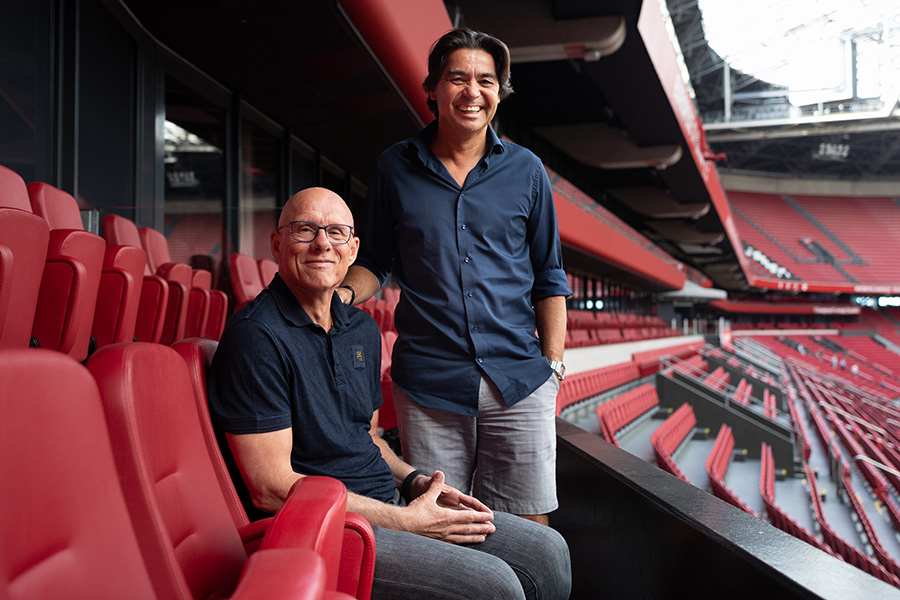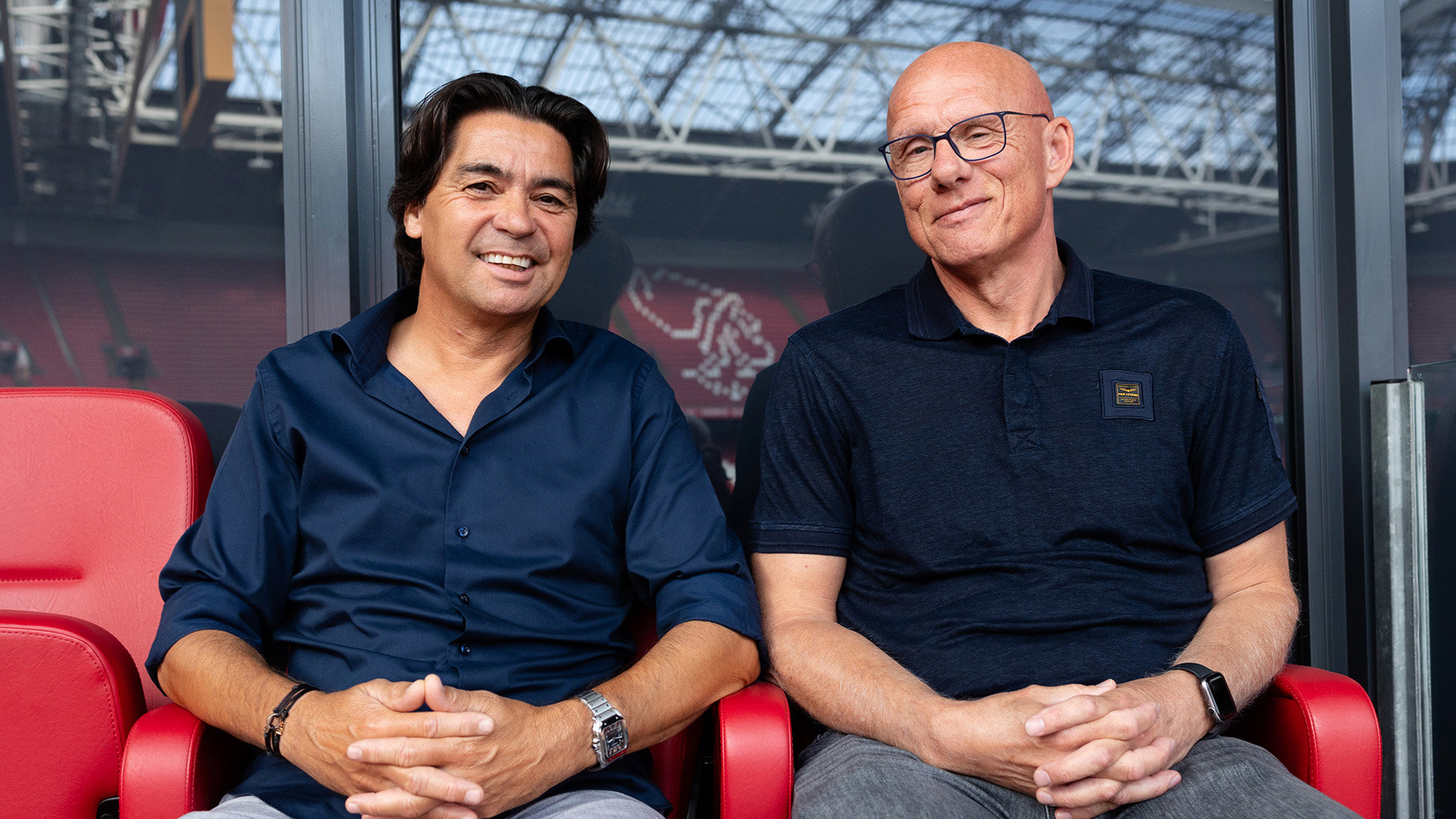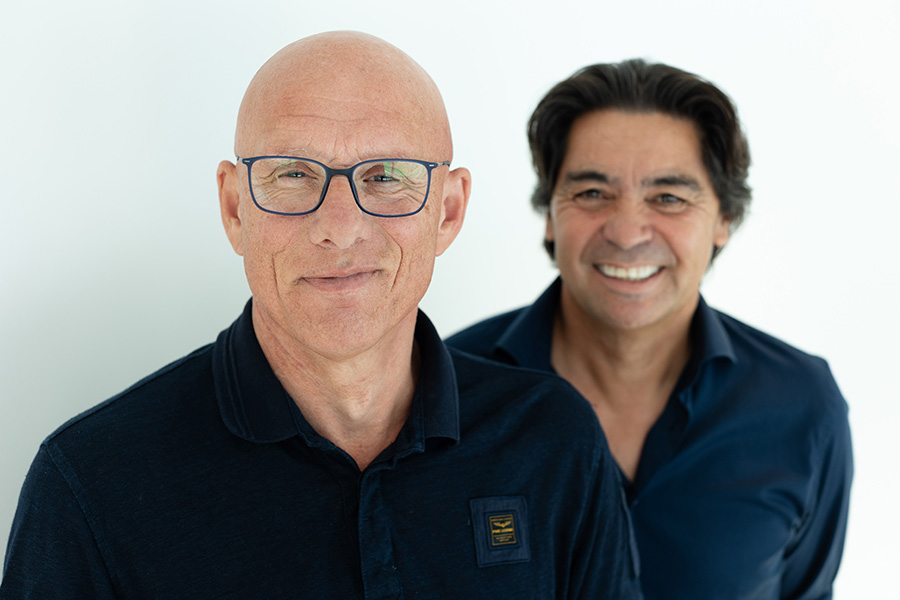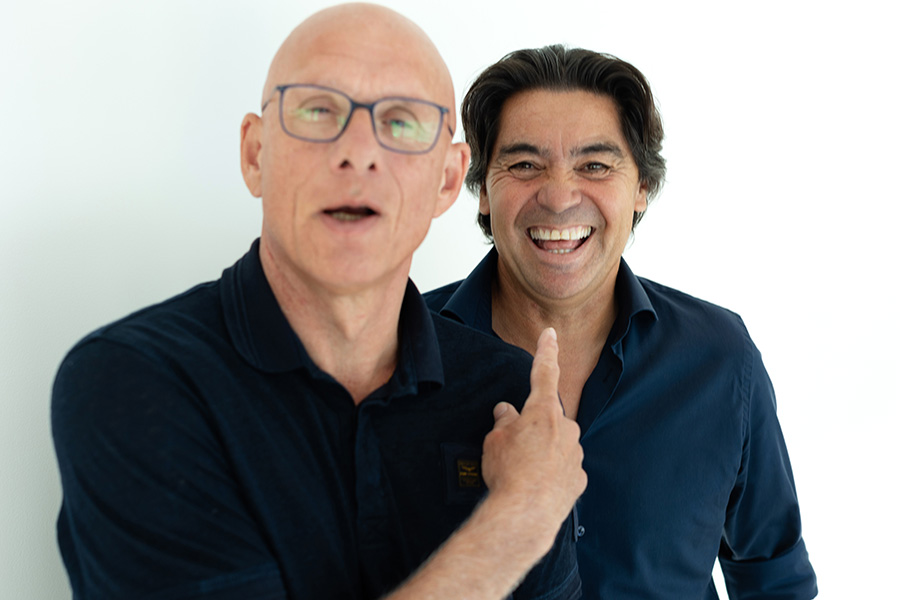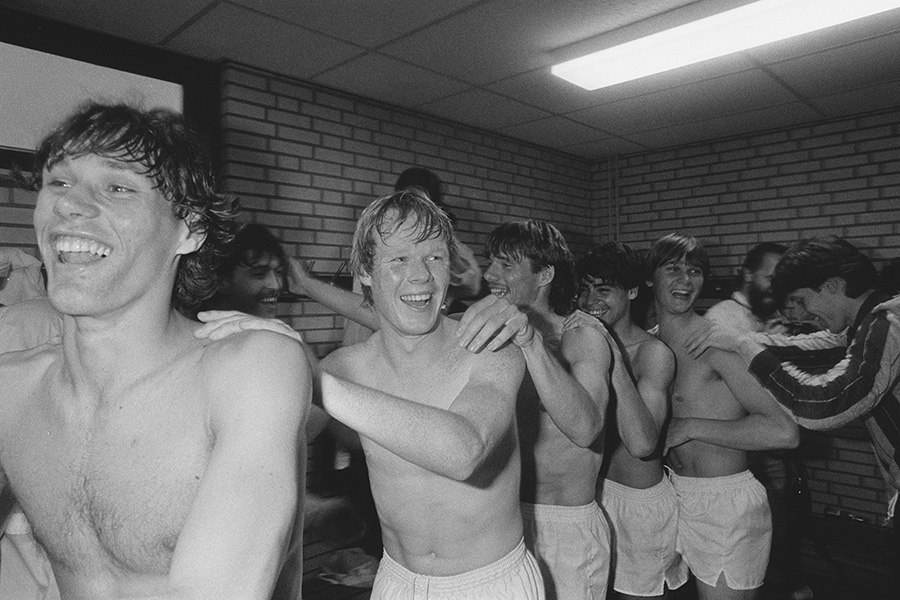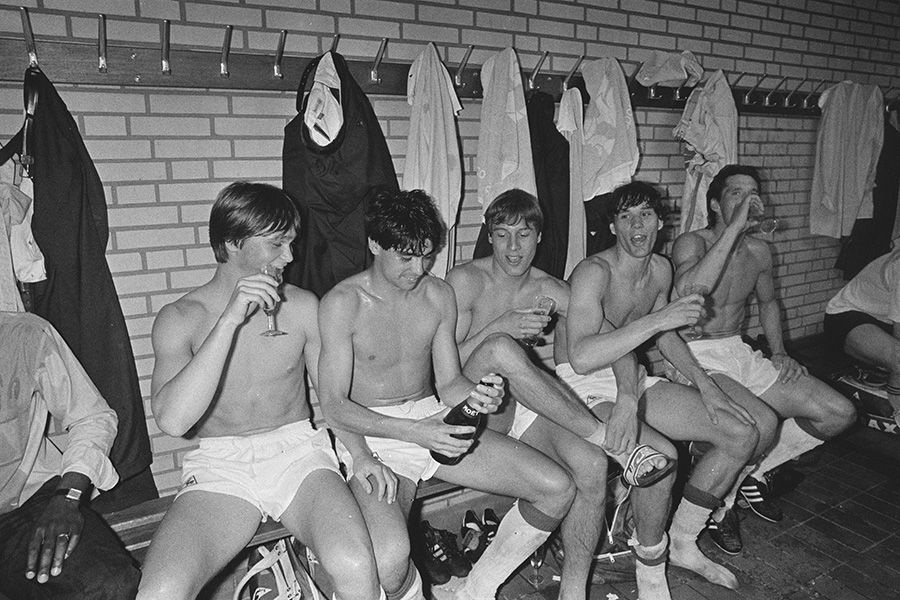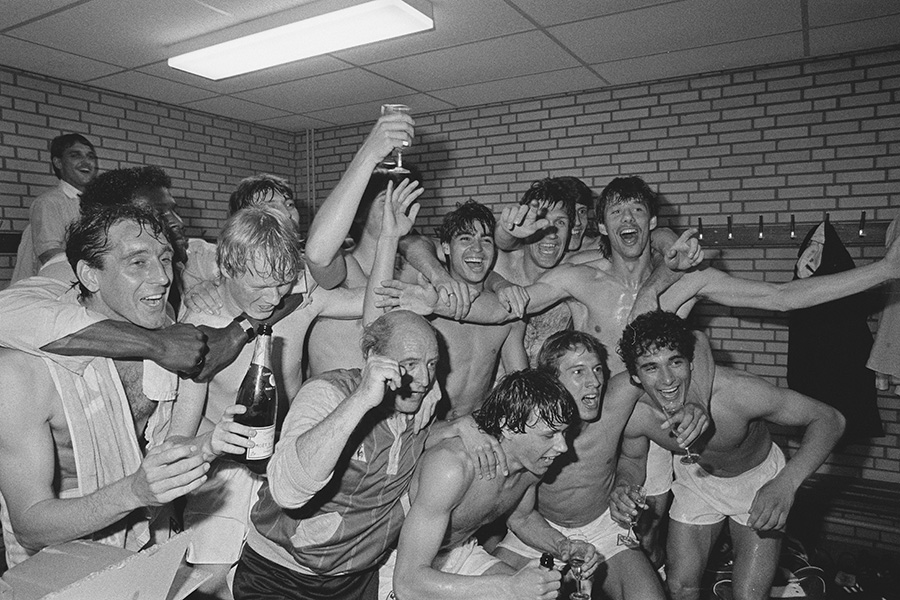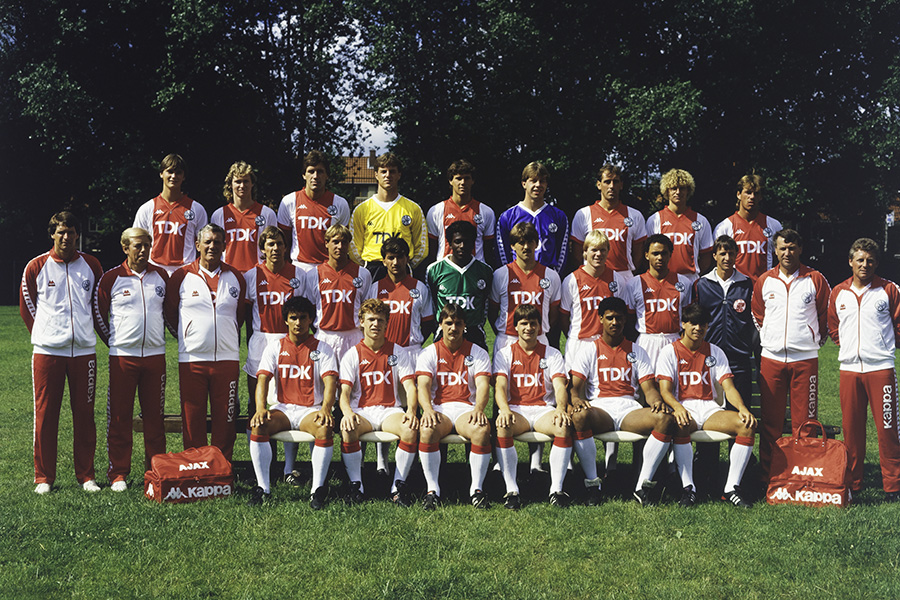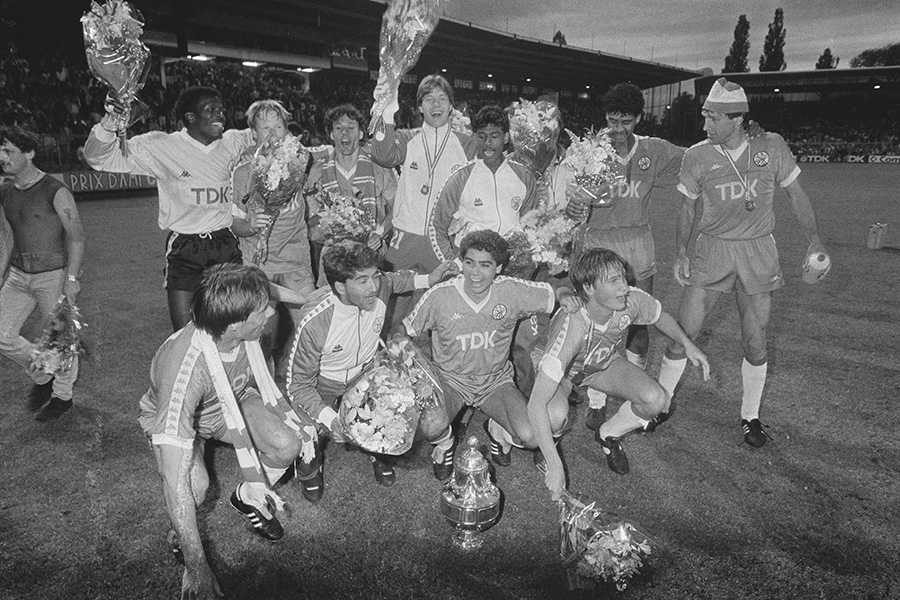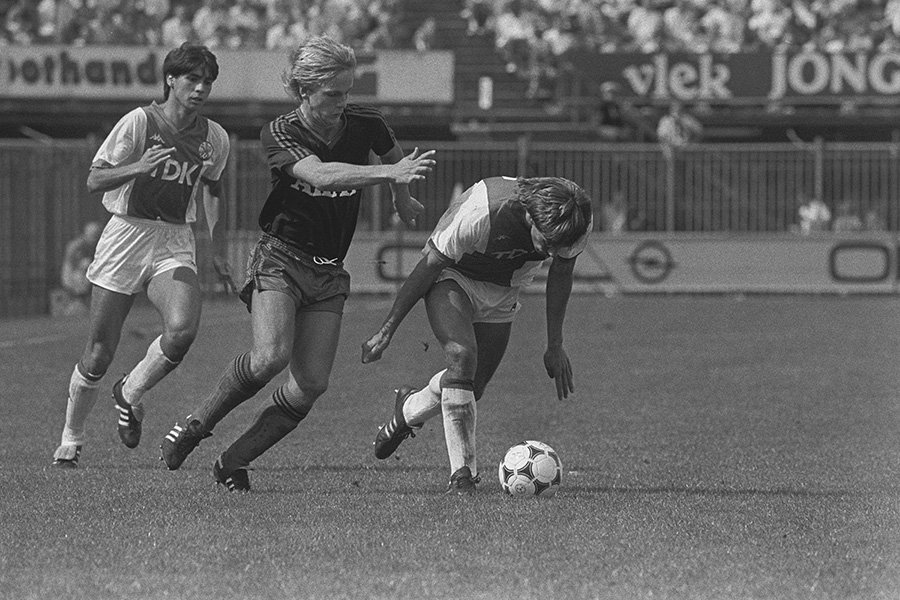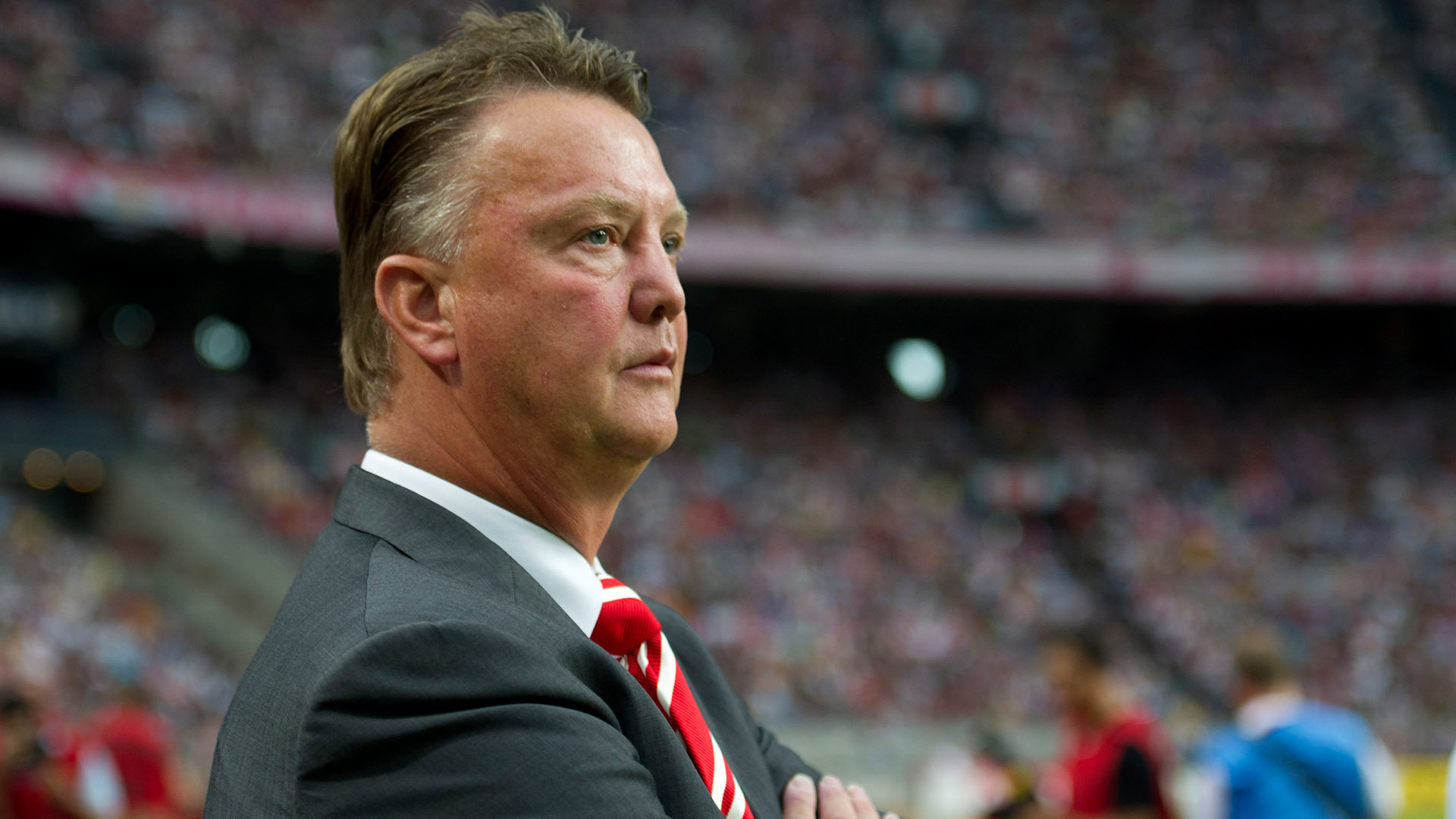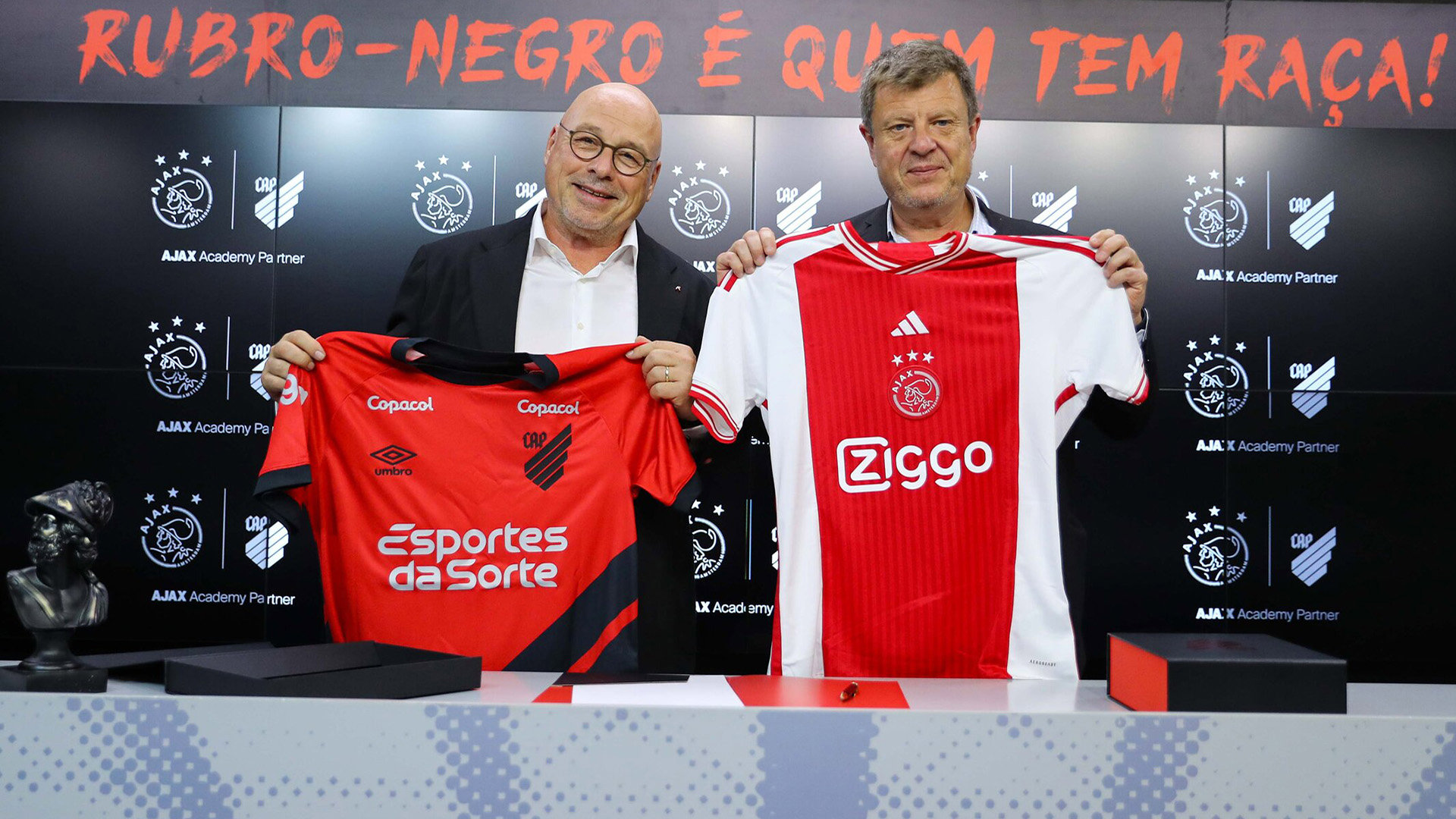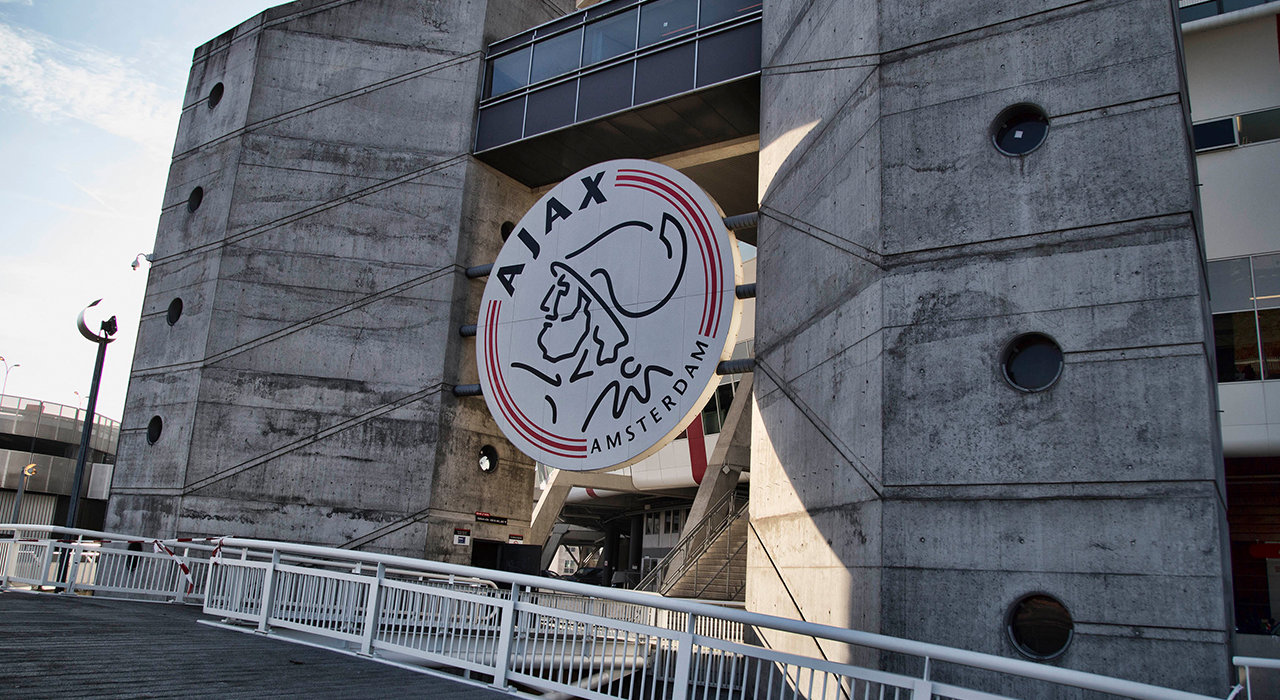Silooy and De Wit were both born in 1963. Silooy on August 31st, and De Wit on September 8th. The duo recently celebrated their sixtieth birthday. It's time to bring them back together and reflect on their joined period in Amsterdam. They meet each other on the deck of the Johan Cruijff ArenA. "I think we last saw each other three years ago", Silooy starts. "I'm glad to see Rob is doing good."
At the age of 22, De Wit suffered a brain haemorrhage while on holiday in the summer of 1986. The former Ajax player recovered and was close to entering the pitch again but decided to quit professional football. With Silooy, De Wit and his wife, we move ourselves to a place that overviews Johan Cruijff ArenA. De Wit is in a wheelchair, which he operates himself and gets him through the stadium smoothly. "My wheelchair is a godsend, so I can do these things and shop or do groceries with my wife."
Against each other
In the skybox, the duo takes a seat on the couch. We go back to the beginning. De Wit was a player of FC Utrecht's reserve team when he faced Ajax. His direct opponent: Silooy. "I was in the military then, and a day before that match, I received a tetanus shot. I was feeling unwell, a bit shaky, and I had a fever. Whenever someone bumped into my shoulder, it would hurt. Before the match, I heard that I was up against a great talent named De Wit. He showed me every corner of the field. It was partly because of that match that he got scouted. If I had been 100% fit, we wouldn't be sitting here," Silooy laughs.
De Wit starts to laugh. "You should have told me that, and I would have taken it into account. I was lucky that Aad de Mos and Johan Cruijff were in the stands then; they thought I was an Ajax player. Although I played well back then, I was always anxious about playing against Ajax and Sonny. He was strong and tough, even at training the training sessions."
Dressing room humour
In the summer of 1984, De Wit made the move to Amsterdam. "I was very proud when I joined Ajax. The club had always been my dream." Along with some teammates, the forward played many pranks. "He was nuts," Silooy laughs. "Once, I came out of the shower, and they had tied my clothes in knots. But De Wit once cut a hole in Ronald Spelbos' tracksuit pants right at his butt. He looked like a fool," Silooy laughs. "As a countermove, Spelbos cut my expensive tie. We often sat in the dressing room with tears rolling down our cheeks," De Wit adds.
Even before De Wit is done laughing, Silooy continues. "I once saw Rob overtaking a bunch of people on a bicycle path with his car: cutting across the grass, taking the inside lane, going outside. All he did was laugh." De Wit says, laughing. "When you're young, you see less danger and sometimes do silly things." They both agree that it was all part of it. However, one incident left De Wit with a bad feeling. "Once, I was leaving De Meer, and our laundry woman was on the hood of my car. The sun was incredibly low, and I couldn't see anything. I felt terrible at that moment. Fortunately, she got up and was okay, and I can laugh about it now. I made it up to her with a bouquet of flowers."
"There always has to be someone who motivates the group, and that was Rob," Silooy continues. "Ultimately, the atmosphere determines success. If the atmosphere in the locker room is good, you can conquer the world. Rob played a significant role in that. I laughed so much during that time. We knew each other inside out as players and as humans in the locker room. You had to be careful and always check your clothes when you came in. It was sometimes childlike, but it determined the atmosphere for us. The jokes kept us sharp on the pitch."
De Wit agrees seamlessly. "Humour was really a part of our team process. We were always serious around games, but not outside of them." The forward was aware of the combination of performance and humour. "If you didn't perform, you couldn't make jokes or play tricks," Silooy confirms. "The older players sometimes came up to us in the dressing room whenever they felt it needed to be more serious. They kept us sharp."
Mixed Season
The first season, 1984/1985, where the duo played together for Ajax, resulted in a championship. Despite that, it was a turbulent season with an early European elimination and the sacking of coach De Mos. "The play was often not good enough, and in the UEFA Cup, we won 14-0 against Differdange only to be knocked out by Bohemians Prague in the next round. That duel was incredible. I don't know what they had taken there, but it wasn’t fair." Silooy tells. "They had big eyes," De Wit illustrates by making a circle with his hands.
De Wit had an excellent start in Amsterdam. "I scored three times in my first two league matches. That's how you leave a great first impression on the fans." Silooy nods and says, "He was a fantastic left-winger. People from Amsterdam want to see dribbles, goals, and entertainment. That was Rob." Erratic and brilliant are two words that best describe the forward. "If my action failed ten times, the eleventh often resulted in the decisive goal. That’s how I always got away with it," De Wit grins.
The team, including Marco van Basten, John van 't Schip, Gerald Vanenburg, Ronald Koeman, and Frank Rijkaard, ultimately became champions that season during a visit to Roda JC. On the way back, the 'vlaaien' from Limburg were not only eaten. "You can guess what happened. Marco just threw the whole thing through the bus, and everything went flying," Silooy laughs.
Cruijff
During the 1985/1986 season, their childhood idol Cruijff was in charge of the group. De Wit was stubborn. "That’s what made me successful; if I always did what everyone wanted me to do, I would never have played for Ajax." De Wit clashed with Cruijff more than once. "I did my own thing and let my man go because I needed to recover after an action I made. Johan knew that, too. After a match, I often sat in the car and thought: ‘Johan was right again.’ I had a lot of respect for him and looked up to him very much.”
"Johan spoke a lot with Rob because he saw his great talent," Silooy continues. "The training sessions were often fun because Rob would get angry when he got scolded. He would start kicking. And who had to face him? Right, me."
Decision
In the summer of 1986, tragedy struck De Wit. A brain haemorrhage ultimately forced the forward to end his short but incredible career. "I would have lost my insurance if I returned as a footballer. I didn't want to take that risk. But I really wanted to continue because I loved the game so much. In the end, Spelbos was the one who told me to quit for the sake of my health. We had to jump over goals, and I couldn't do it; I tripped over them. He saw that, and that's when the curtain fell for me, and I made the choice."
The forward looked like he would return to professional football, Silooy says. "It was a long road for him, but at one point, he was fit again, and Cruijff wanted to use him. It wasn't meant to be. In 1987, we won the Europa Cup II, and Rob would have been there if it hadn't happened. It’s a real shame he had to quit playing.”
De Wit nods but is incredibly grateful for what he went through. "I realise it could have ended very differently. Now, I can talk to you about football and still have my memory. To make it to professional football as a young boy, play for Ajax and the Dutch national team, and train under Cruijff was very beautiful. And someone like Sonny, I'll cherish him forever. Fun and performance are two separate things, but one can't do without the other. That was the case for us.”
"We were a close-knit group with a lot of humour, and you could always find someone to talk to if you had problems. I look back on our time with a wonderful feeling. Do you know what it is? When you meet players from the past, it’s exactly how it used to be. I have that with Rob, too." Silooy concludes with a broad smile.
